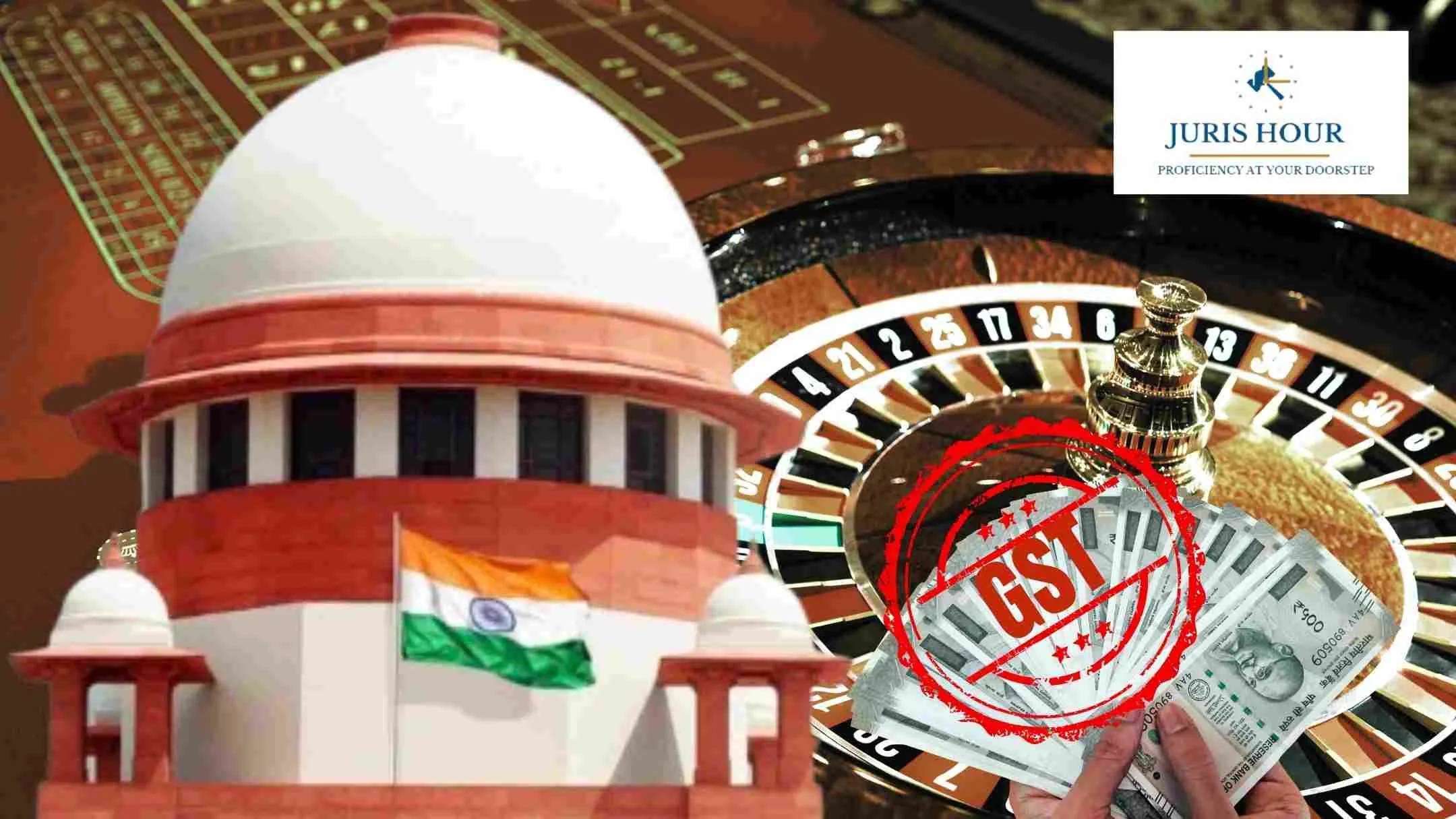SC Bench to Conclude Hearings on July 25; Delta Corp Argues GST Demand is “Confiscatory, Arbitrary, and Unconstitutional”
In a high-stakes legal battle with profound implications for India’s gaming and entertainment sectors, Delta Corp Limited—the country’s largest publicly listed casino operator—has mounted a comprehensive challenge before the Supreme Court against a Rs. 33,500 crore retrospective Goods and Services Tax (GST) demand issued by the Centre.
The case, part of a batch of petitions raising foundational constitutional and legal questions about the taxation of gaming activities, is being heard by a Supreme Court division bench comprising Justices J.B. Pardiwala and R. Mahadevan. The court has fixed July 25 as the final date of hearing, after which judgment will be reserved.
Retrospective Tax Based on Controversial Valuation Method
The impugned GST demand arises from show-cause notices issued for the period between July 1, 2017, and March 31, 2022, and stems from the government’s adoption of the gross bet value (GBV) as the basis for taxation. This contrasts with the globally recognized norm of taxing gross gaming revenue (GGR)—the operator’s actual earnings after paying out player winnings.
Delta Corp, along with its subsidiaries, argues that the government’s interpretation is not only a dramatic departure from international standards but also a violation of fundamental constitutional principles, including Articles 14 and 19(1)(g), which protect equality and the right to carry on business.
Delta’s Casino Operations Under Government Licenses
Delta operates licensed casinos in Goa and Sikkim under respective state gambling laws. Over the disputed five-year period, the company claims to have paid ₹542.59 crore in GST based on GGR, in addition to ₹422 crore in license fees and ₹262 crore in income tax.
Senior Advocate Dr. Abhishek Manu Singhvi, representing Delta, argued that taxing GBV—essentially the total amount wagered by players—results in grossly inflated tax liabilities. In one illustrative example, a casino that earned just ₹10,000 in GGR would be liable to pay ₹61,600 in GST under the GBV method. Singhvi called this approach “absurd, confiscatory, and economically devastating.”
Questioning Rule 31A and Legislative Competence
Central to Delta’s challenge is the validity of Rule 31A of the CGST Rules, which was cited by tax authorities to justify GBV-based valuation. The company asserts that this rule, originally framed to address race club betting, cannot be extended to casinos, particularly as a new Rule 31C—specific to casinos—was introduced only in October 2023.
Delta’s legal team also raised broader constitutional issues, arguing that the Centre lacks legislative competence to tax gambling and betting activities, which fall under the states’ domain post the repeal of Entry 62 of List II. They contend that casino gaming does not constitute a “supply” under the GST framework, and that the retrospective application of tax provisions violates the principles of legal certainty and fair notice.
Staggering Tax Demands Far Exceed Actual Revenues
Financial records submitted by Delta paint a stark picture of mismatch between revenues and tax demands:
- Goa Operations: GGR of ₹1,640.4 crore; GST paid: ₹358.39 crore; GST demanded: ₹11,139.61 crore
- Sikkim Operations: GGR of ₹77.3 crore; GST paid: ₹18.14 crore; GST demanded: ₹628.2 crore
- Delta Pleasure Cruise (Goa): GGR of ₹220.25 crore; GST paid: ₹53.97 crore; GST demanded: ₹1,765.22 crore
- Highstreet Cruises (Goa): GGR of ₹542.99 crore; GST paid: ₹112.09 crore; GST demanded: ₹3,289.94 crore
Across all entities, the group reported a combined GGR of ₹2,480.94 crore and paid ₹542.59 crore in GST, yet now faces demands exceeding ₹33,500 crore after interest and penalties—a figure more than 13 times its total revenue for the period.
Dr. Singhvi warned the court that such retrospective and disproportionate taxation threatens to cripple the legitimate, license-based casino industry in India.
Parallel Challenge from Online Gaming Sector
In a related matter, Senior Advocate Balbir Singh, representing a real money gaming platform, urged the court to differentiate between betting, gambling, and games of skill. He highlighted how online gaming was taxed as an OIDAR (Online Information Database Access and Retrieval) service until 2023, when legal amendments reclassified it under actionable claims.
Singh submitted that retrospective taxation on this basis is similarly untenable and legally unsustainable, particularly for companies that had been compliant under the earlier tax regime.
What Lies Ahead
With the court scheduled to wrap up hearings on July 25, all eyes are now on the impending verdict. The outcome could have wide-reaching consequences not only for Delta Corp but for the future of gaming and gambling regulation in India—particularly in relation to federal powers, valuation methodologies, and the limits of retrospective taxation under GST.
Read More: Unregistered Vegetable Vendor Slapped with Rs. 29 Lakh GST Demand over UPI Transactions

